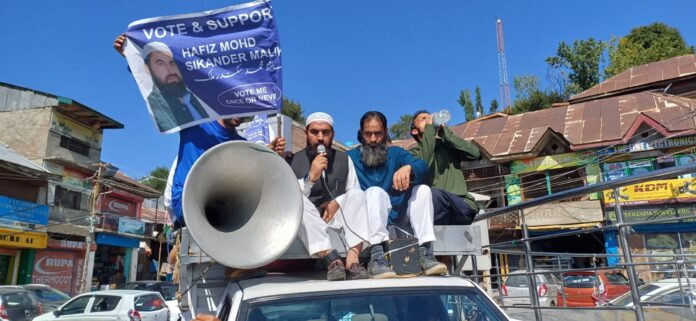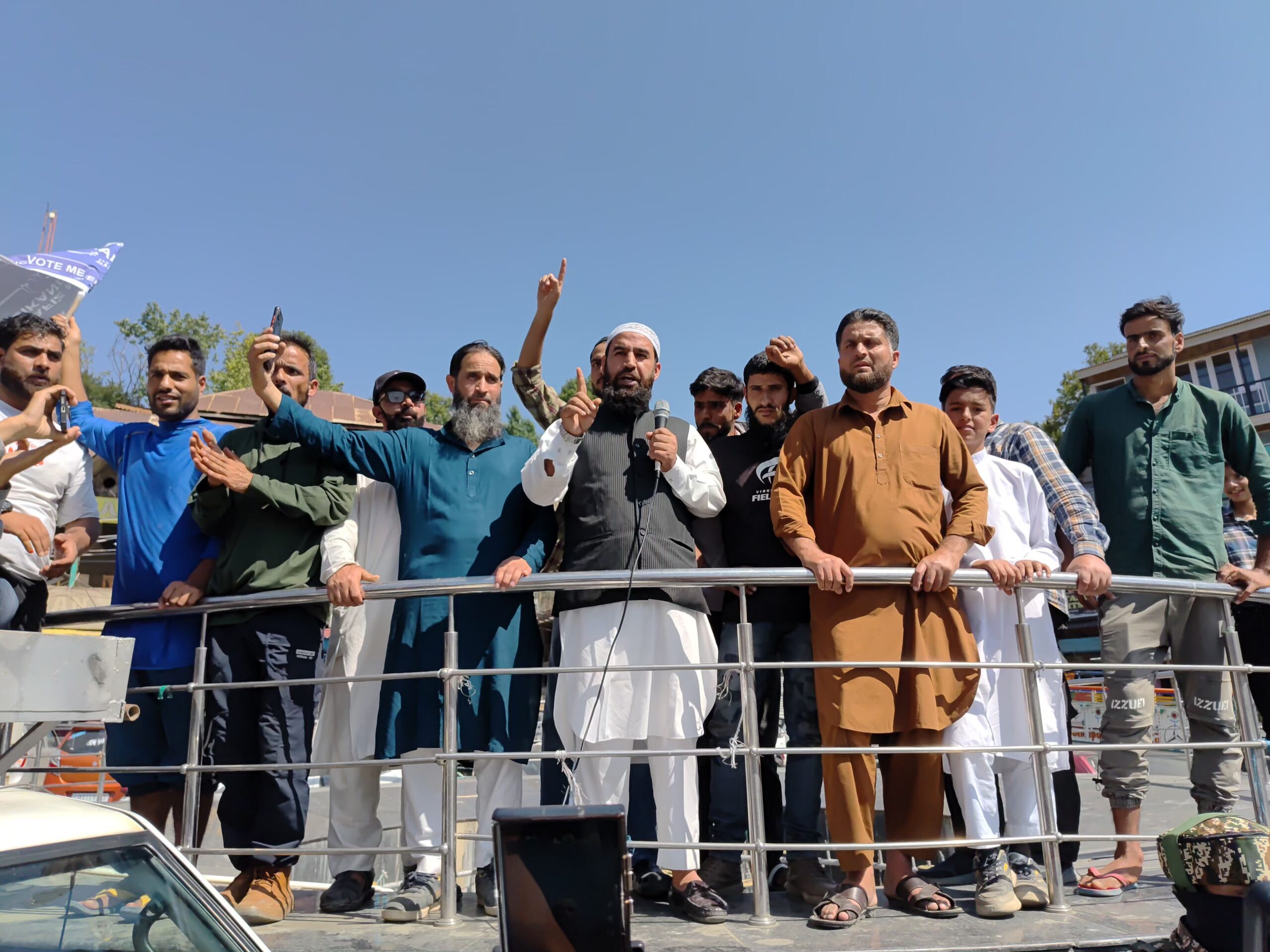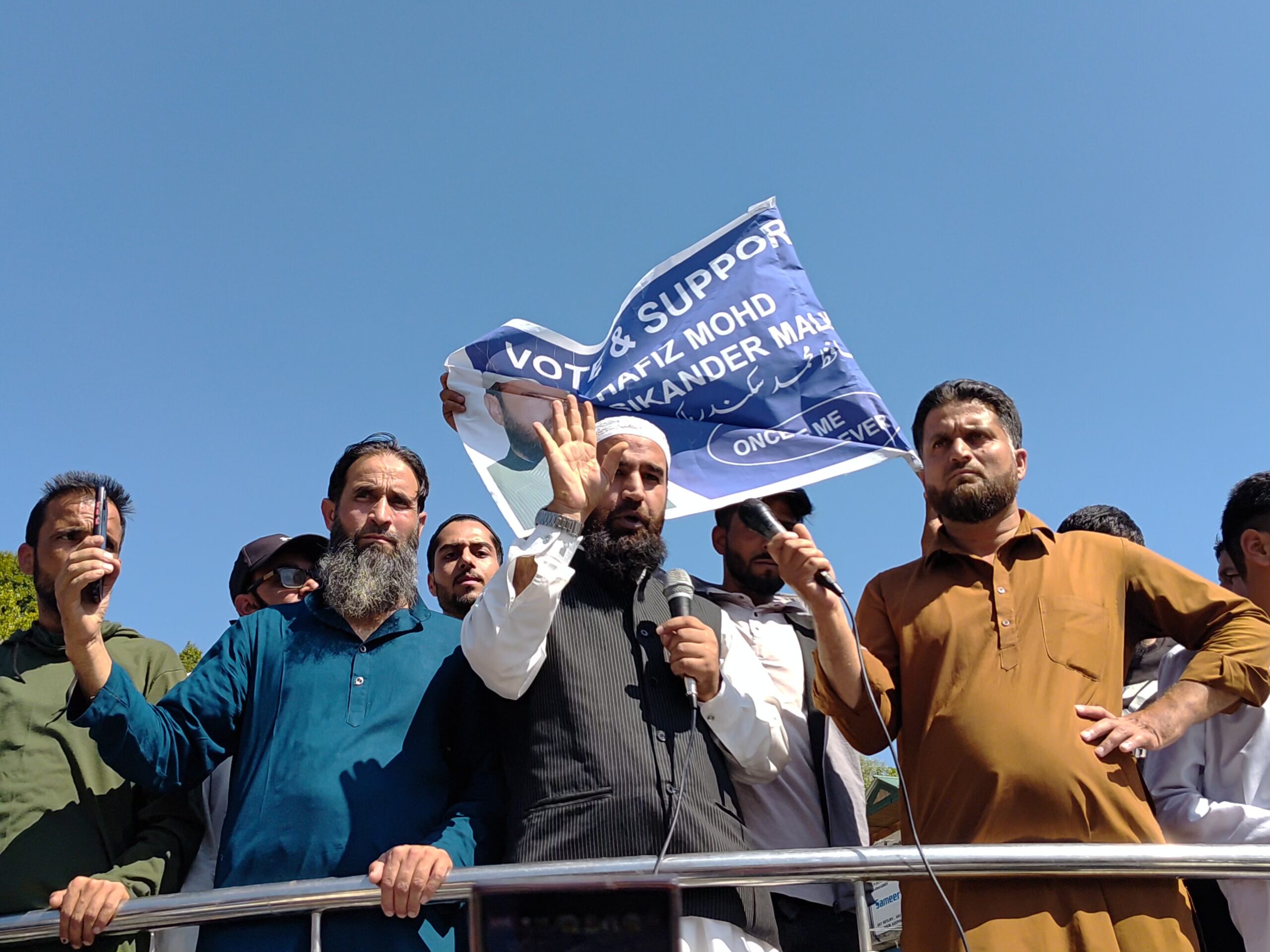
Tauseef Ahmad, TwoCircles.net
Srinagar: In the heart of Kashmir’s evolving political landscape, Hafiz Mohammad Sikander Malik stood out not just as a candidate, but as a symbol of resilience and challenge. This election marked a significant moment in his life, as he contested the Jammu and Kashmir Assembly elections as an independent candidate from the Bandipora constituency while wearing a GPS anklet — a first in the erstwhile state’s electoral history.
Malik, a post-graduate in Arabic language and literature from IUST Awantipora, emerged as a figure of intrigue. Having previously served as a district president of the Jamaat-e-Islami (JeI), he navigated a complex political terrain shaped by his party’s historical context. The JeI, after a 37-year hiatus from electoral politics due to the contentious 1987 elections, re-entered the fray, albeit under the scrutiny of mainstream parties that accused its candidates of being proxies for the Bharatiya Janata Party (BJP).
Yet, Malik remained steadfast in his approach. “We will never collaborate with anyone, including the BJP, as our ideals do not align with theirs,” he asserted. “We will serve the people in our own way.”
His commitment was evident, as he sought to address pressing issues facing the Muslim community, particularly criticising policies he viewed as harmful.

During a rally, he voiced concerns over the Waqaf Amendment Bill, which he argued undermines Muslim governance over religious properties. “Several policies are being made against the Muslim community. If we do not raise our voices, we may lose control over our mosques,” he declared passionately.
A Mark of Control
Malik’s journey back into politics has not been without obstacles. Earlier this year, he was released on bail after being booked under the Unlawful Activities (Prevention) Act (UAPA) and the Public Safety Act (PSA), which included the condition of wearing a GPS anklet to monitor his movements. This requirement was part of a broader directive from the Union Home Ministry, allowing certain prisoners temporary leave under strict surveillance.
“I feel like my freedom is restricted with this GPS; my privacy is being breached,” he reflected, a sentiment that underscored his complicated relationship with state authorities. Yet, despite the constraints, he drove to advocate for the rights of other detained youths in Kashmir. “Many youths have been detained and were not found guilty for the charges against them. I went to the people for these issues as well,” he claimed.
Malik’s personal experiences with detention have shaped his perspective on governance and justice. “I have been detained multiple times since August 2019. In 2022, I was booked under the PSA and shifted to Kot Bhalwal Jail in Jammu and then Haryana. Before the parliamentary elections, I was detained for around two months in Bandipora jail.”
Despite these hardships, his outlook remained optimistic. “I hope people will choose us in these elections. I have not offered empty promises but real development and genuine leadership,” he insisted, encapsulating the duality of hope and challenge that defines his candidacy.

Navigating a Complex Landscape
As Malik stepped into the electoral arena, the atmosphere in Kashmir was charged with a mix of anticipation and skepticism. The JeI’s return to politics complicated traditional dynamics, with its candidates, including Malik, emerging as challengers to mainstream parties that have long held sway in the region.
While the JeI taking part in the electoral democracy raised eyebrows, for Malik, the focus was clear: to connect with constituents and address their concerns directly. As he canvassed in Bandipora, he aimed to highlight not just the issues at stake, but also to reclaim a narrative of empowerment amidst the complexities of Kashmir’s politics.
Many say he embodied the spirit of a new generation of Kashmiri leaders — one that seeks to redefine engagement and challenge the status quo, even as he navigates the delicate boundaries of monitored freedom.

